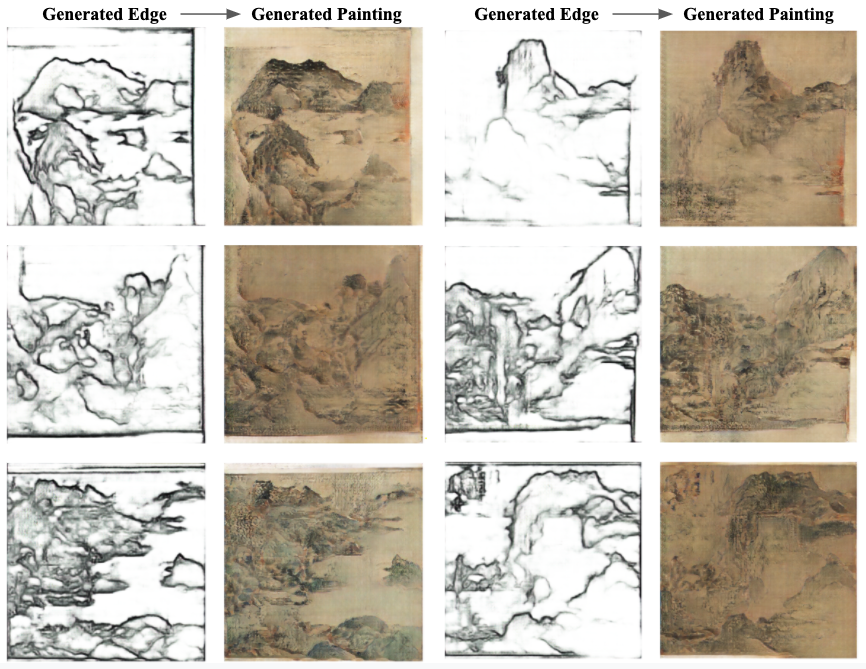Thesis Prize Winner Teaches Computers to Paint Landscapes
17 September 2020

As students dig back into their research this fall, we are happy to introduce this year’s student prize winners. Their projects, which combine humanistic inquiry and digital tools in intriguing ways, are sure to provide inspiration to anyone curious about the digital humanities. This week, meet 2020 undergraduate thesis prize winner Alice Xue ’20, whose thesis, “Can a Machine Originate Art? Creating Traditional Chinese Landscape Paintings Using Artificial Intelligence,” paired her computer science skills with an underused resource from the Princeton University Art Museum.
[ Note: This interview has been lightly edited for clarity and space.]
Can you describe your project?
The goal of my thesis was to generate traditional Chinese landscape paintings using artificial intelligence. To make the paintings edge-defined and high-quality, I developed a two-stage machine learning model based on a framework known as the Generative Adversarial Network (GAN). The first stage of the GAN generated sketches of the landscape painting, and the second stage painted within those sketches to produce the fake painting. In a survey of 262 people, the paintings generated by my model were mistaken as human art 55% of the time. This research is significant because it introduces a model so “intelligent” that it produces paintings good enough to pass as human-created.

How did you become interested in digital humanities?
As a computer science major, I've always looked for ways to incorporate my fascination with East Asian culture into technical research, so the digital humanities aspect naturally arose from that. The first exposure I had to digital humanities was in my junior year at Princeton, when I was in Professor Adam Finkelstein 's independent work seminar and did a project using machine learning to classify Mandarin Chinese tones.
I could not have gotten this research done without guidance from a ton of wonderful people, especially my advisor, Professor Brian Kernighan. Because my thesis was very interdisciplinary, I also got advice from a range of faculty and students who were well-versed in machine learning, computer vision, and East Asian cultural studies.
What surprised you about doing a digital humanities project?
It surprised me how most artificial intelligence researchers have overlooked Chinese paintings for generative art research, given how beautiful these landscape paintings are! These ancient paintings were also more readily accessible than I thought. For instance, the Princeton University Art Museum has an amazing open-access digital collection of Chinese paintings which was valuable to my dataset, but it's unfortunately underused by most researchers.
What advice would you give a Princeton undergrad interested in incorporating digital humanities into their work?
I came into this thesis having not ever taken a machine learning course, so I was often overwhelmed with the question of what a novice like me could possibly add to the innovative research already out there. But I found there's always an interesting angle to approach a problem, because one's interests and skill sets are uniquely theirs. For me, that angle was applying a decades-old idea like neural networks to East Asian art, in a way others haven't thought about before.
Incorporating digital humanities into your work comes naturally. Find what you're interested in—be it nineteenth-century literature or jazz music—and there is always a way you can gather data out of it to analyze or make a technical tool related to it. The digital humanities mindset makes research fun and applicable, because there are so many out-of-the-box applications.
Where are you headed next in your career?
I'm going to be working for Facebook as a software engineer. Doing the thesis made me more interested in machine learning, and I've been considering pursuing the research route later in my career!
Congratulations to Alice, as well as honorable mention winner Cathleen Kong ’20. If you’re a student interested in learning more about Digital Humanities, request a consultation from CDH staff to chat about your ideas!
Images courtesy of Alice Xue.